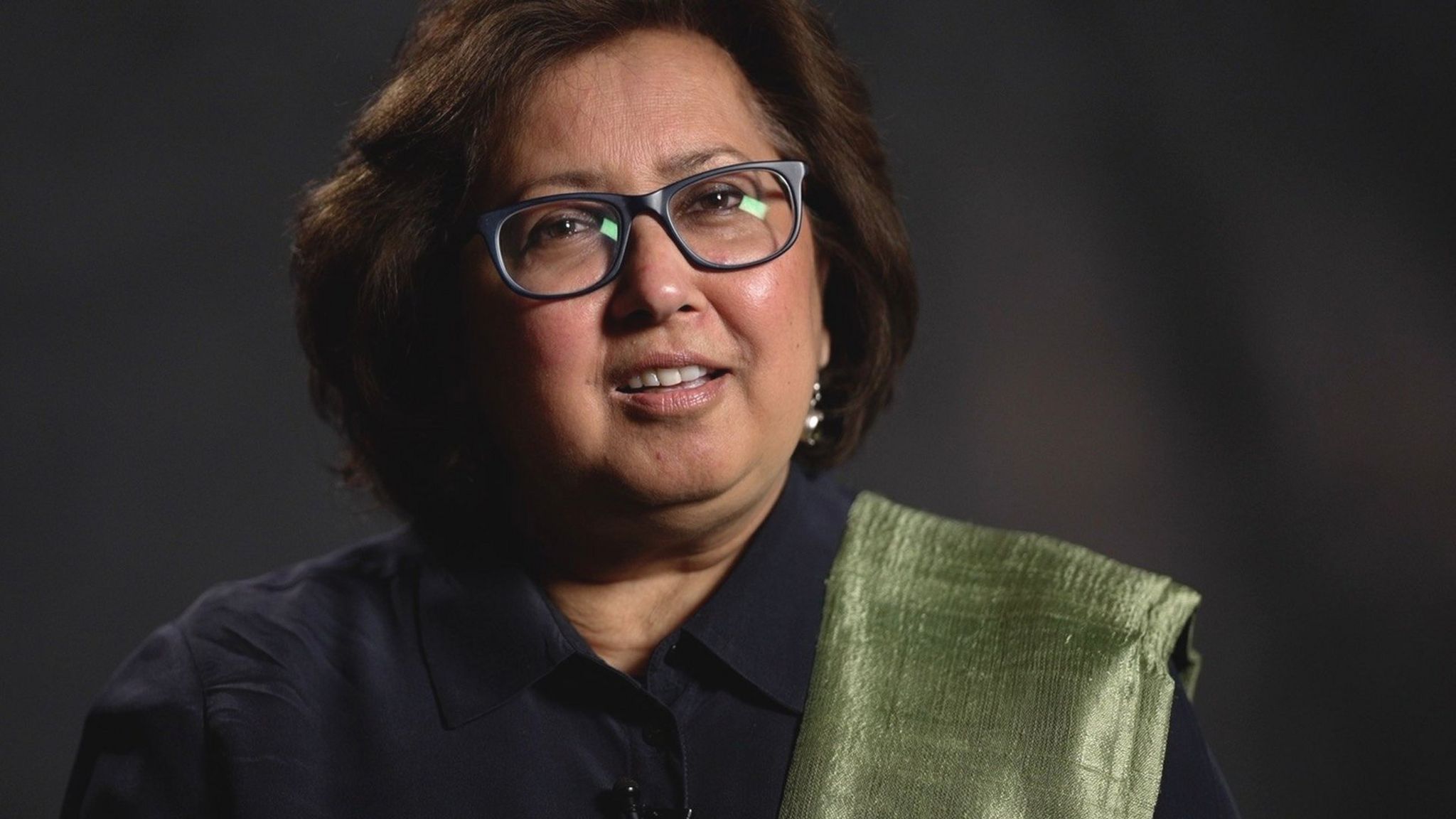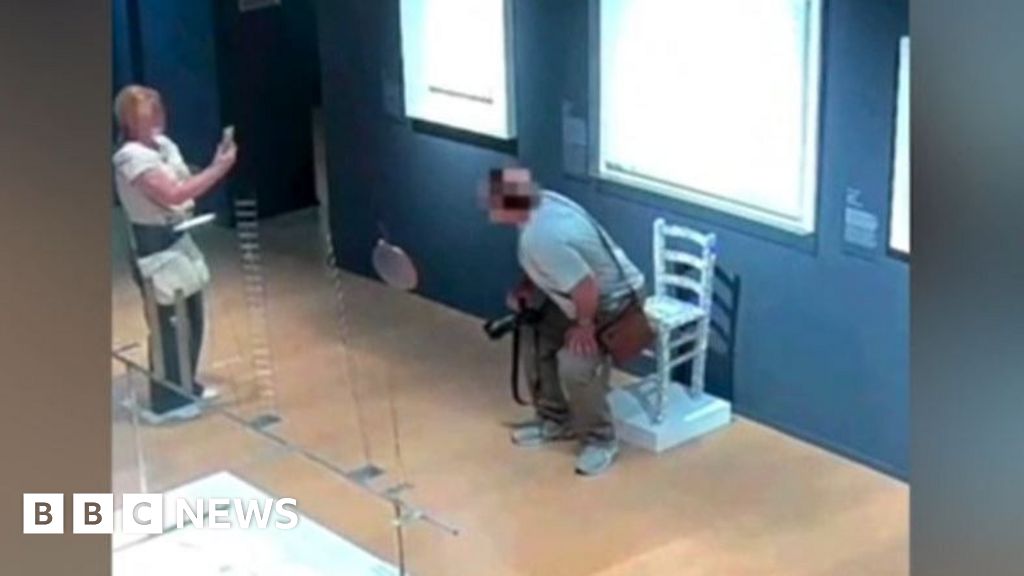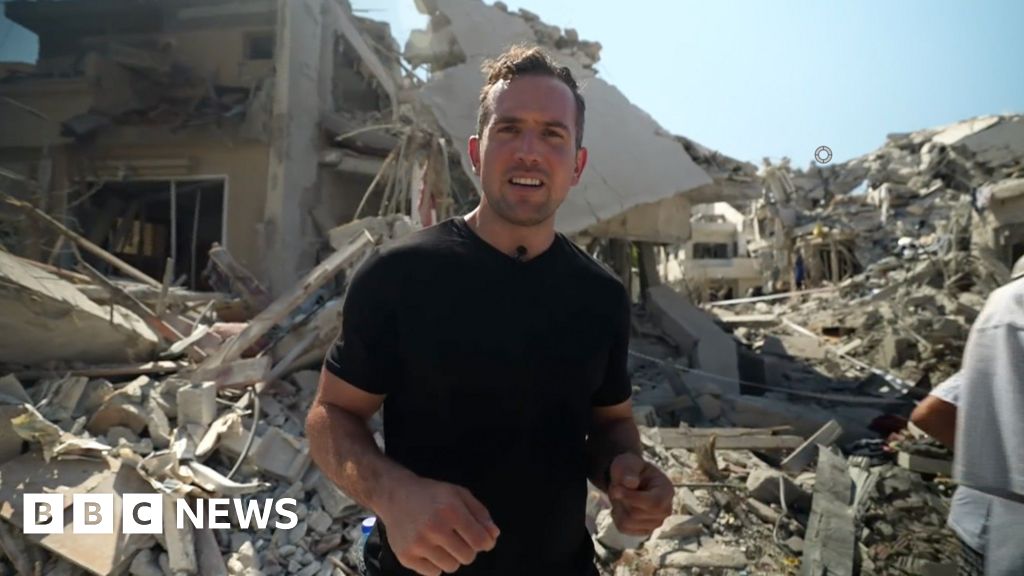ARTICLE AD BOX
By Sarah Bell & Sima Kotecha
BBC News

Purna Sen: "Why is the secretary general not saying, 'This is outrageous, what do we do about it?'"
The treatment of whistleblowers at the United Nations should be examined by an external panel, its former spokeswoman on sexual harassment has said.
Purna Sen's comments follow a BBC investigation which revealed the sackings of a number of UN staff who tried to expose alleged wrongdoing.
Ms Sen said the UN should "step up" and adopt any suggestions made by a panel.
The UN has said it is committed to protecting "bona fide whistleblowers" and holding staff accountable.
The BBC documentary, The Whistlebowers: Inside the UN, features accounts from staff members who tried to report allegations - including fraud and sexual abuse. All said they had been penalised after speaking out - and some were sacked.
In the film, Ms Sen - who was appointed spokeswoman on harassment, assault and discrimination in 2018 - said there were women at the UN who had been "approached, accosted and raped". The more men were allowed to get away with it, she said, "the more they will keep doing it".
She has told BBC Newsnight that she is not surprised by the "deeply-upsetting" testimonies.
"It suggests that sometimes the protection of the senior folk within each organisation matters more than the absence of harm to those who aren't powerful.
"It means there is a real tension within an organisation which not only upholds and advocates for human rights, but is actually the birthplace of most of these human rights - yet it hasn't learned to bring them home to the people who work for that organisation."
Ms Sen said she wanted UN Secretary General António Guterres to appoint a diverse external panel to consider staff experiences and recommend a focused set of actions.
In a statement, Mr Guterres' office said it remained open to any external review of its efforts "to combat misconduct of any kind".
Diplomatic immunity
The United Nations has a protected legal status and senior staff have diplomatic immunity from all national laws. No one working for the UN can be questioned or arrested without the UN removing their immunity.
Image source, Getty Images
Image caption,UN headquarters in New York, 2021
All staff complaints have to be addressed internally. The Office of Internal Oversight Services (OIOS) handles the most serious allegations, including claims of criminality, but has no legal authority.
The BBC was handed a secret recording which suggests the OIOS is not always effective. It features Ben Swanson, director of the investigations division, addressing a staff meeting. He says a senior UN female member of staff had come to him in tears, describing how an assistant secretary general had put his hand down her trousers.
The UN has a number of assistant secretary generals.
In the recording, Mr Swanson states that he told the secretary general and other senior officials of the sexual assault allegation - but was quickly shut down. "So I tried to tell this story and I got... I was cut dead,"he can be heard saying.
He added that the woman was discouraged from reporting her alleged assault and told it wouldn't do any good to speak up since the man in question was a "favoured son".
"I believe the organisation is riddled with corruption from bottom to top," says Peter Gallo
Peter Gallo - the whistleblower who shared the audio recording - told the documentary: "I spent four years as an investigator in the UN headquarters in New York. And as a result of that experience, I believe the organisation is riddled with corruption from bottom to top."
After hearing his account, Ms Sen said: "Why is the secretary general not saying, 'This is outrageous, what do we do about it? My zero-tolerance policy means we have to act.' Instead we get an account of 'No, we're not going there.'"
The office of the UN Secretary General says it remains committed to "sanctioning any staff, junior or senior, found to have engaged in sexual harassment".
'Sleazy'
Martina Bostrom, a former senior advisor for UNAIDS, told the BBC she was also a victim of sexual harassment at work.
"Sexual abuse, exploitation and harassment in the UN happens in headquarters, it happens Monday to Friday. It happens during regular work hours, it happens everywhere," she said.
Martina Brostrom: "I pleaded with him to stop, let me go"
She said she was targeted by Luiz Loures, UNAIDS deputy executive director and an assistant secretary general, who she described as being "sleazy" and known for his inappropriate behaviour. During a work event in Bangkok in 2015, she said he forcibly kissed and groped her in a lift as they left a meeting, before trying to drag her towards his room.
"I pleaded with him to stop, let me go. I had to block myself with the elevator door to be able to stay in because I was afraid I was seeing that long corridor," she said. "My brain was obviously working very, very, quickly and dreading what could happen."
Martina launched a formal complaint and spoke to UN investigators. The UN and UNAIDS "retaliated in very mean and hurtful ways," she said.
"That's very painful because it's almost like being violated all over again. It's like they don't give you a chance to breathe."
In 2018, Luiz Loures retired from the UN and was thanked for "his 22 years of dedicated service". He told the BBC: "I have never harassed nor assaulted anyone. The accusations made are unfounded."
The UN said: "Allegations of harassment against Dr Loures were investigated," but at this time it was "not in a position to comment on the veracity of these claims".
In August 2021 Martina received a letter from the UN that accepted that she was "sexually harassed over a protracted period of time" but, in regard to the allegation she was sexually assaulted in 2015, they concluded "something traumatic happened to you consistent with your account of the situation", but the findings "did not meet the evidentiary standards".
Watch now on BBC iPlayer: The Whistleblowers: Inside the UN - or at 21:00 on Tuesday 21 June on BBC Two.
Zero-tolerance
Ms Sen said Martina's case was symptomatic of a wider problem at the UN.
She told the documentary that an "astonishing" third of UN staff said they had experienced sexual harassment while working, but that the vast majority of cases had not been reported.
"What we do know about cases is just the tip of the iceberg and, this is a really important point, people feel there will be adverse consequences for reporting, they will be retaliated against.
"If I had been attacked or sexually assaulted, I would likely not have reported it. I would not put myself through that process."
Image source, Reuters
Image caption,UN Secretary General António Guterres
In a statement, the office of UN Secretary General, António Guterres, said there had been "major improvements to fighting the scourge of sexual harassment, from which no organization is immune". It said measures included hiring female investigators to look into allegations, a hotline for staff to report misconduct and better training of senior management.
But, speaking to BBC Newsnight, Ms Sen said accounts in the documentary suggested the UN had not fulfilled its promises of zero-tolerance and had "a lot further to go".
"Whether it's corruption, fraud, sexual harassment, [UN staff] feel they can't progress even to making a report, that the complaints are initially dismissed far too early. They're not given alternative procedures and appeals access," she said.
"The UN has certainly addressed some of the big failures it had before, but it hasn't gone far enough. I have seen things that are very troubling - that can and should be addressed as a matter of urgency, not just in words, but in deeds."

 2 years ago
86
2 years ago
86








 English (US) ·
English (US) ·